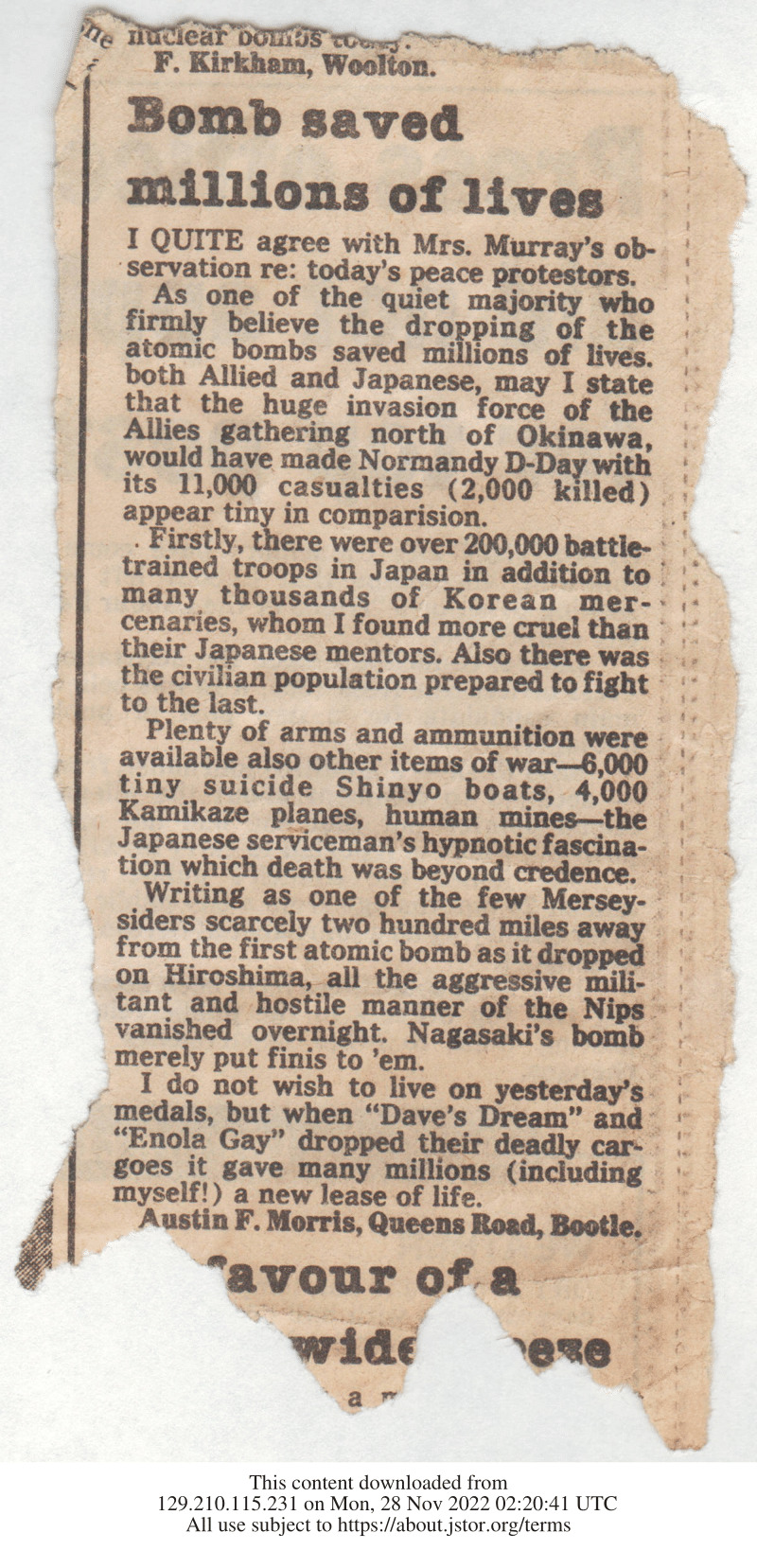The Decision to Drop and Justification of the Atomic Bomb
The Decision to Drop the Bomb
During the summer of 1945, Truman and his collegues knew that it was no longer necesarry to release an atomic bomb to avert invading Japan. Marshall, Bernstein, and many important political and military figures believed that Japan would surrender if the Soviet Union were to enter the war. The United Stated intercepted communications from the Japanese Emporer proving Japan was in a poor, worsening state. However, it was evident that Japan would only surrender if their Emporer were to be spared and in power, and the United Stated wanted an unconditional surrender. Furthermore, dropping a bomb would eliminate the necessity of U.S.S.R interference and an invasion. Thus, Truman decided to drop the bomb. Truman's decision was further encouraged by a wanting to "impress or scare the Russians." Dropping the atomic bomb would rapidly conclude the war, suppressing Russian influence in Asia and Europe. Such reasoning put Japan through enduring trauma and suffering (Alperovitz et al. 204-214).
The Justification
The common justification of the bomb was it rapidly ended the war and saved the lives of millions. For example, Austin F. Morris titled his 1945 editorial "Bomb saved millions of lives." The number of deaths from an invasion of Japan would have been much greater, Morris argues. Morris continues, the thousands of troops in Japan, Korean mercenaries, citizens willing to fight, suicide boats, kamikaze planes, and mines would have caused more deaths than the atomic bomb, which put a clean and rapid ending to the conflict (Morris 1945).
Immediately following the dropping of the atomic bomb, America was in support of Trumans' decision so Truman didn't release any justifying claims. When the public began questioning the ethicality of the atomic bomb, Truman justified the decision by claiming it saved millions of American and Japanese lives. However, much less than 20,000 American lives were saved by dropping the atomic bomb. Henry Stimson, Secretary of War, publcially responded to the public's concerns by arguing that an invasion would have lasted a year, harming and killing millions of Americans and even larger quantities of enemies. Winston Churchhill provided a similar explaination, arguing millions of American and British lives would be lost. However, neither individual provided evidence supporting their claims (Miles 1985).
